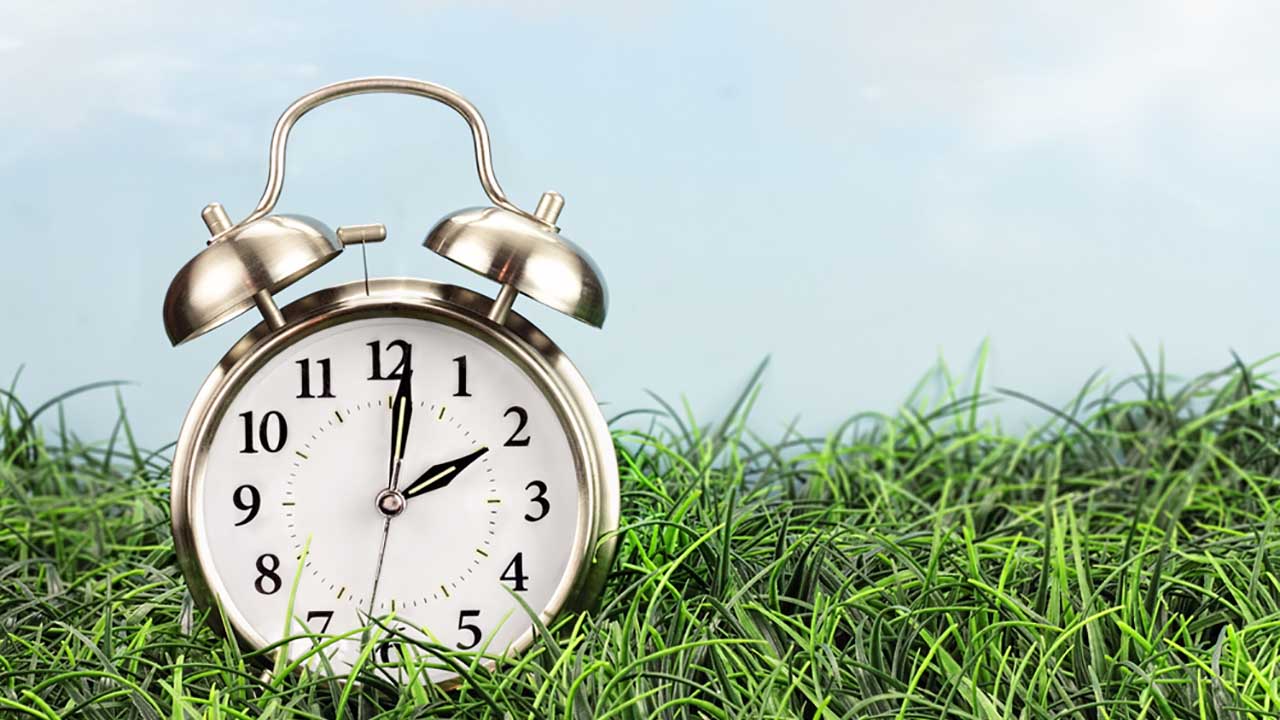When does daylight saving time begin? Everything you need to know about 'springing forward' in 2023
Daylight saving time begins at 2 a.m. local time Sunday, meaning most Americans lose an hour of sleep.

NEW YORK -- Daylight saving time begins at 2 a.m. local time on Sunday, meaning the sun sets later in the evening -- but most Americans lose an hour of sleep.
Many experts have pointed to the time change's adverse health effects, and polls show that the majority of Americans would rather avoid the switch back and forth.
But like it or not, 2023 carries on the hundred-year practice of "springing forward."
Here's everything need to know about the end of daylight saving time this year:
When are Americans springing forward? Falling back?
Daylight saving time begins at 2 a.m. local time on Sunday, March 12, and ends at 2 a.m. on Sunday, Nov. 5.
When clocks "spring forward," it'll be darker earlier in the morning and lighter earlier in the evening.
Daylight saving time: Fact and fiction
- It's daylight saving time, not daylight "savings" time. You are saving daylight, not savings daylight.
- Contrary to popular belief, daylight saving time was not invented for the benefit of farmers. Credit for daylight saving time belongs to Benjamin Franklin, who first suggested the idea in 1784.
- The Germans were the first to officially adopt the light-extending system in 1915 as a fuel-saving measure during World War I.
- From 1986 to 2006, DST in the U.S. started in April and ended in October but was extended to March through November beginning in 2007.
- About 70 countries around the world observe DLS.
- Hawaii, American Samoa, Guam, Puerto Rico, the U.S. Virgin Islands and most of Arizona don't observe the time change.

How does the daylight saving time change impact health?
A 2020 study by the National Institutes of Health found that around 150,000 Americans experienced physical health problems caused by the biannual time changes.
These included strokes, heart attacks, accidents and changes in mood, for example, said Dr. Jennifer Ashton, ABC News chief medical correspondent.
"It's really all about that crossover between biology and social life and how it affects our circadian rhythms," she said.
Circadian biologists believe ill health effects from daylight saving time result from a mismatch among the sun's "clock." This impacts our social clock -- like work and school schedules -- and the body's internal 24-hour body clock.
Ticking away at the molecular level, the biological clock is entrained -- or set -- by exposure to sunlight and darkness. It regulates bodily functions such as metabolism, blood pressure and hormones that promote sleep and alertness.
Time changes mess with sleep schedules, a potential problem when so many people are already sleep-deprived, says Dr. Phyllis Zee, a sleep researcher at Northwestern Medicine in Chicago.
And numerous studies have linked the start of daylight saving time in the spring with a brief spike in car accidents, and with poor performance on tests of alertness, both likely due to sleep loss.
Will the U.S. ever get rid of DST?
The twice-yearly switcheroo is irritating enough to lawmakers of all political stripes that the Senate passed legislation in March 2022 to make daylight saving time permanent. It passed by unanimous consent. The bill would need to pass the House of Representatives and be signed by President Joe Biden to become law.
All these months later, what happened?
Well, Americans agree on the problem but not the solution. The fight over daylight saving time has been going on for more than 100 years now. Should we turn the clocks forward in the spring and set them back in the fall? If not, then should we either stick with daylight saving time or the more traditional standard time?
It turns out that, as it is with many other issues and national debates, there are competing special interests with a lot of money at play.
The U.S. Department of Transportation, which oversees daylight saving time, says the additional sunlight later in the day saves energy, results in fewer traffic and pedestrian fatalities, and reduces lawlessness, since "more people are out conducting their affairs during the daylight rather than at night, when more crime occurs."
A permanent shift could mean more children get ready for school and adults head to work in the dark.
How can people prepare themselves for the time change?
Try to prepare the body gradually. Slowly adjusting your sleep schedule about a month in advance can lessen the time change's blow.
Dr. Ashton said you can also get extra exposure to morning sunlight. Eating lightly throughout the day can help keep circadian rhythms balanced.
Minimizing screen time and avoiding bright lights also help.
"Be aware of changes in our mood. This can really affect people, and I think it's important not to dismiss those changes," she said.
The Associated Press and CNNWire contributed to this report.








